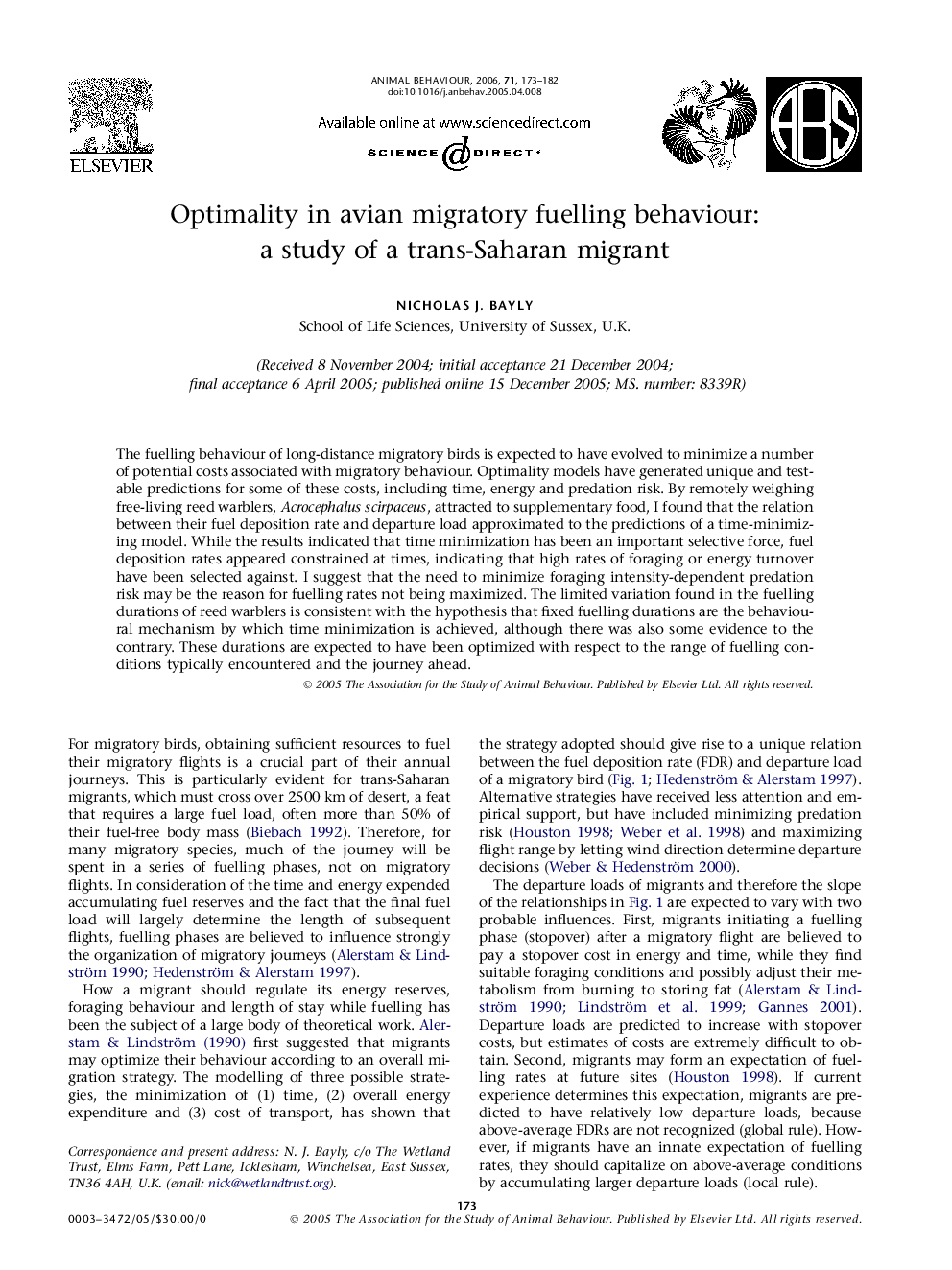| Article ID | Journal | Published Year | Pages | File Type |
|---|---|---|---|---|
| 2418705 | Animal Behaviour | 2006 | 10 Pages |
The fuelling behaviour of long-distance migratory birds is expected to have evolved to minimize a number of potential costs associated with migratory behaviour. Optimality models have generated unique and testable predictions for some of these costs, including time, energy and predation risk. By remotely weighing free-living reed warblers, Acrocephalus scirpaceus, attracted to supplementary food, I found that the relation between their fuel deposition rate and departure load approximated to the predictions of a time-minimizing model. While the results indicated that time minimization has been an important selective force, fuel deposition rates appeared constrained at times, indicating that high rates of foraging or energy turnover have been selected against. I suggest that the need to minimize foraging intensity-dependent predation risk may be the reason for fuelling rates not being maximized. The limited variation found in the fuelling durations of reed warblers is consistent with the hypothesis that fixed fuelling durations are the behavioural mechanism by which time minimization is achieved, although there was also some evidence to the contrary. These durations are expected to have been optimized with respect to the range of fuelling conditions typically encountered and the journey ahead.
